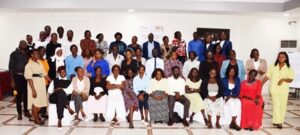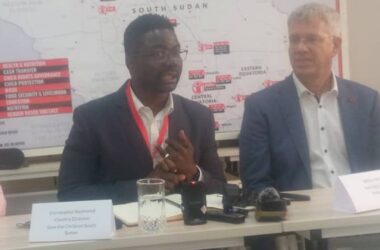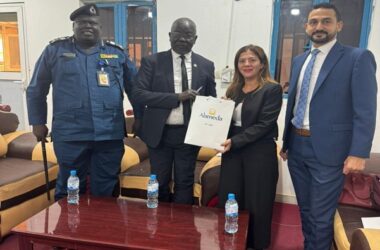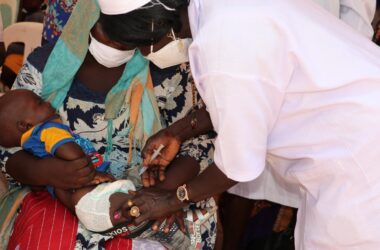
By Lodu William Odiya
Over 50 participants, including females advocates and male allies, gathered in Juba from August 19 to 21, 2025, to share their experiences of healing following psychosocial support and trauma healing training conducted in May 2025.
This gathering, inspired by a series of psychosocial support and trauma healing training sessions conducted in May 2025, organized by the Peace Movement Netherlands Foundation (PAX) as part of the Empowered Women Influence (EWI) Project, generously funded by the German Federal Foreign Office (GFFO).
The training assessed the transformative impact of psychosocial support and trauma counseling on the lives of female lawyers in South Sudan.
Participants engaged in reflective discussions about their personal and professional growth, revealing how the training had equipped them with essential tools to navigate the often-challenging landscape of advocacy work in a country striving for peace and justice.
In his closing remarks, The Country Director of PAX for South Sudan, Emmanuel Ira expressed gratitude to the participants and facilitator Rev. Dr. Alice Muse.
“I want to first give appreciation to you, the advocates, for turning up in this follow-up psychosocial support training workshop. We very much appreciate your time,” he stated.
Emmanuel emphasized the importance of self-care for advocates dealing with traumatic cases.
“At times you have to counsel the victim, however, how do you counsel the victim if you yourself are not healed? This training is to prepare you to be strong,” he explained.
He urged the advocates to share their skills and knowledge with their communities, noting the ripple effect of their work.
“Even if it is one case you handle, you can imagine how you are going to help our society,” he added.
The workshop facilitator and a Psychologist, Rev. Dr. Alice Muse highlighted the challenges advocates face, particularly regarding cultural practices.
“You as women advocates have learned skills that are crucial in your work. You are not just seeking justice; you are also counselors,” she stated.
Dr. Muse, encouraged participants to create awareness around legal rights and support for women and men alike.
The Project Officer for EWI at PAX, Martina Kani, commended the women advocates for their recent outreach efforts in Juba, sharing information on psychosocial support and legal frameworks.
“We want to see that the effort we are putting into this training gives fruitful results,” she emphasized, reminding the group of the project’s goal of empowering both women (60%) and men (40%).
Participants shared powerful testimonials about the impact of the training on their lives and work.
Advocate Buseina Robert reflected on the theme of forgiveness, stating, “From the first part of psychosocial support training, I learned a lot… I now know how to forgive someone.”
A male advocate and ally, Emmanuel Bashir, spoke about applying the training in real-life situations. “I realized that there were things I needed to forgive. When I took this step, I found that it made a difference to me,” he shared.
Bashir, recounted an experience with a distressed client and how he applied his training to provide support, highlighting the importance of emotional resilience in their work.
Advocate Stella Jimmy Lemi stressed the importance of spreading the knowledge gained from the training.
“I urge my fellow women and male lawyers to share the skills in their workplaces and communities,” she said.
“We need to reach more members as advocates in the country to contribute positively to the psychosocial well-being of our communities.”
The Empowered Women Influence Initiative aims to enhance the capacities of women advocates and civil society organizations to influence legislation and judicial reforms in South Sudan.
As participants continue to apply their skills and knowledge, they hope to create lasting change in their communities and beyond.
In his closing remarks, Emmanuel of PAX extended his gratitude to the Government of the Federal Republic of Germany for funding the three years project through the GFFO, and “we look forward to having Laws and judicial reforms which positively impact gender equality and overcomes gender-based violence (GBV).”



